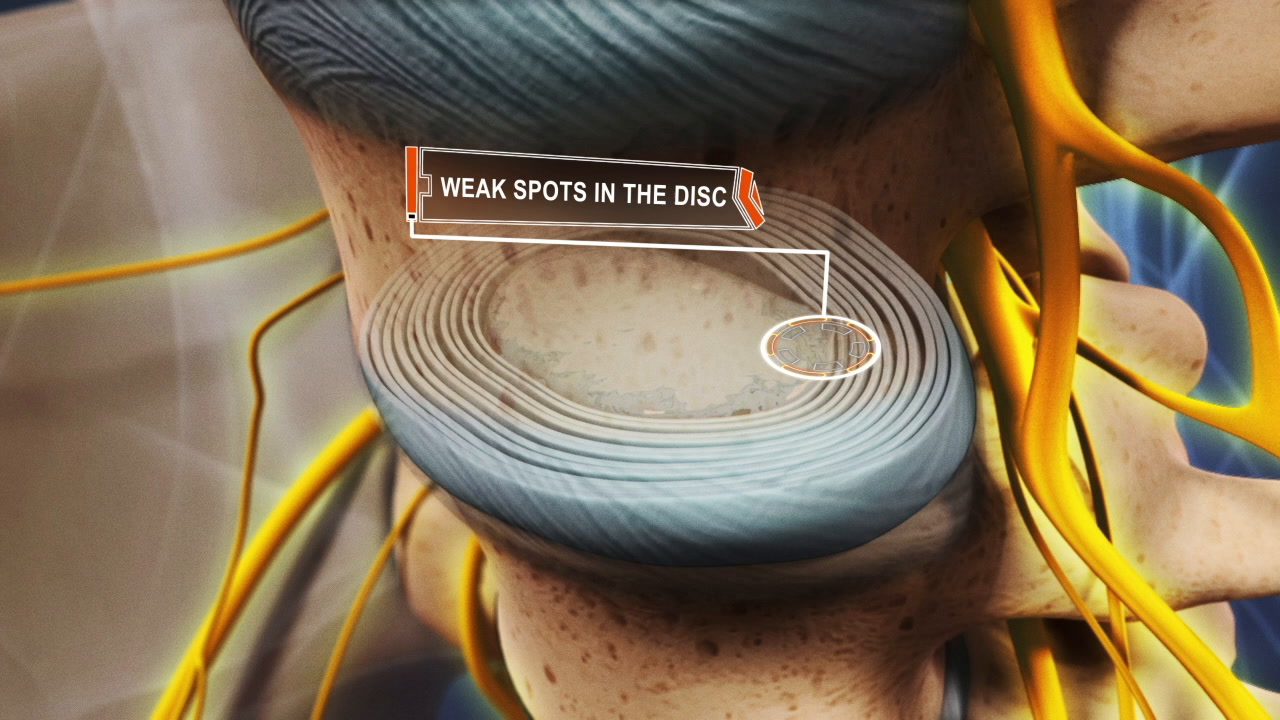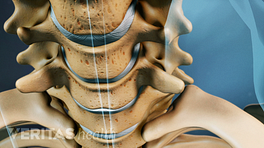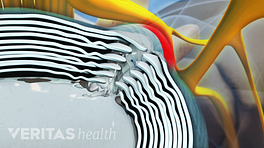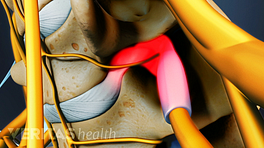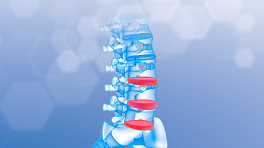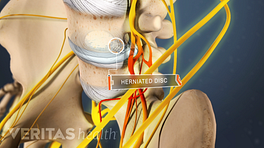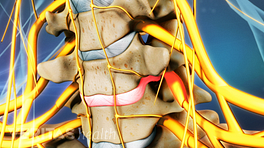You may get different answers to this question, depending on who you ask.
It is true that herniated disc symptoms can subside over time even without medical intervention. But does that mean the herniated disc has healed on its own?
As with so many things, the answer is incomplete. Yes, your symptoms may resolve, but this does not necessarily mean the herniated disc itself has healed.
How does a herniated disc cause pain?
Discs herniate either by rupturing the outer layer of the disc called the annulus, or breaking the endplate off the vertebral body (Rajasekaran, Spine 2013), allowing the soft gel-like center (the nucleus pulposus) to ooze out. This gel can pinch or compress parts of the nerve sac, causing pain.
See Insights and Advice About Herniated Discs
The herniated nucleus pulposus contains inflammatory proteins that can cause enough inflammation to affect the nearby nerve and cause what is commonly known as sciatica, or a radiculopathy.
In This Blog Series:
- Can Herniated Discs Heal on Their Own?
- Everyday Activities to Avoid with Herniated Disc
- Herniated Disc Video
How does a herniated disc get better on its own, or become asymptomatic?
Three main processes are thought to reduce the symptoms and pain caused by a lumbar herniated disc:
- An immune response by your body. In some instances, your body may recognize the portion of the disc that has herniated as foreign material and attack it, reducing the fragment in size. The inflammatory proteins are also removed.
- Absorption of water. The herniated fragment of the disc contains water. Over time this water will be absorbed by the body, causing the herniated segment to shrink in size. As it shrinks it may no longer affect the nearby nerve.
- Natural disc mechanics. While controversial, some will argue that through extension exercises, the symptomatic portion of the disc can be moved inward toward the disc and from the spinal nerves.
See Insights and Advice About Herniated Discs
Any of the above factors may help reduce the size of the herniation, which means your nerve root is less likely to be affected. In these situations, your disc hasn’t healed, per se, because your disc still has a herniation. Your symptoms, however, may subside due to an absence or reduction of inflammation and/or pressure near the nerve root.
Managing your herniated disc
If you have a herniated disc, the key question is not whether it will technically heal. Rather, the most important question is how you should focus your treatment and rehabilitation to reduce your acute symptoms and prevent future problems.
If you have recurrent symptoms from a herniated disc, there are known surgical options that have favorable results in improving pain and dysfunction.
See Treatment Options for a Herniated Disc
While early surgical intervention may be recommended for severe pain and disability, non-surgical treatment is usually the first prescribed course of action.
The bottom line is to not worry too much about whether or not your herniated disc is healed. MRI research studies have identified many people who have a sizable disc herniation and yet are totally pain free. For those folks, the disc herniation is not a source of pain (Boden et al, 1990).
